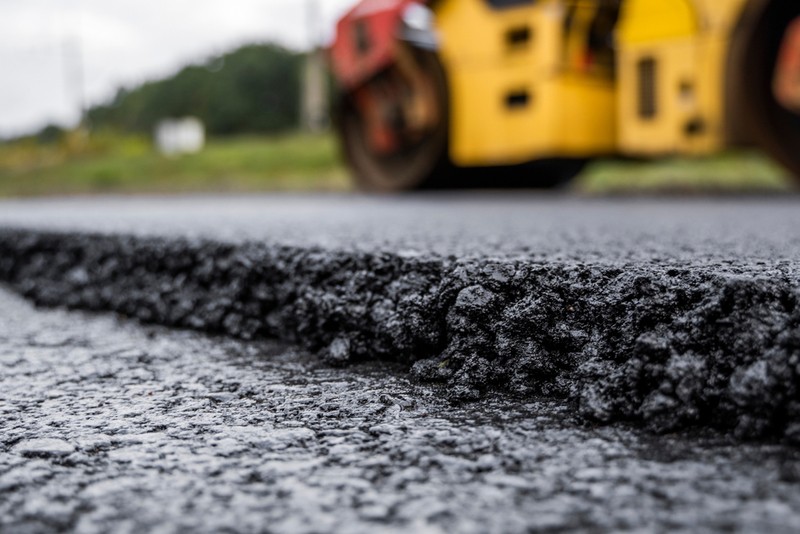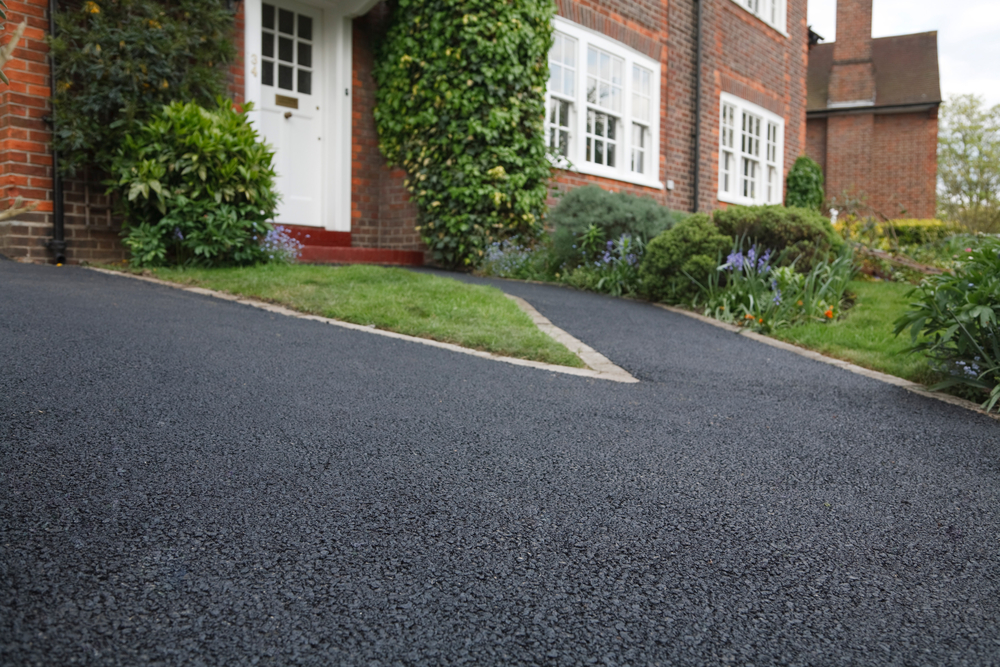Unleash the Potential: Regrading and Asphalt Sealing for Business Rooms
Hot Mix Asphalt: A Lasting Solution for Sidewalk
Hot Mix Asphalt (HMA) has arised as a leading sustainable choice for pavement remedies, offering a myriad of ecological benefits and innovative technologies. As the need for green building and construction techniques grows, exploring the nuances of HMA's sustainability can offer valuable understandings into the future of sidewalk options.
Ecological Benefits of Hot Mix Asphalt

In Addition, Warm Mix Asphalt aids to reduce urban warmth island impacts. Its dark color soaks up sunlight, minimizing the quantity of warm showed back right into the environment contrasted to lighter-colored sidewalks. This can reduce ambient temperature levels in city areas, reducing the need for cooling and inevitably reducing energy usage.
On top of that, Warm Mix Asphalt adds to enhanced stormwater management. Its porous nature enables water to infiltrate the sidewalk and recharge groundwater products, minimizing drainage and the risk of flooding. These environmental advantages make Hot Mix Asphalt a sustainable choice for leading roads and highways.
Energy Effectiveness in HMA Production
Is power performance an essential consider the production of Hot Mix Asphalt (HMA)? Absolutely. Power plays a considerable role in the production of HMA, influencing both price and environmental sustainability. One crucial aspect of power effectiveness in HMA manufacturing is making use of warm mix asphalt (WMA) innovations (angled parking). WMA allows for the blending and positioning of asphalt at lower temperatures compared to conventional warm mix asphalt, resulting in minimized power consumption during manufacturing. This procedure not only lowers gas usage yet additionally lowers greenhouse gas emissions, making it a more environmentally pleasant choice.
Moreover, innovations in plant innovations have brought about even more energy-efficient HMA production processes. Modern plants are created with features like recycled asphalt sidewalk (RAP) handling capabilities, effective burner systems, and improved insulation, all adding to power financial savings. By maximizing energy use in HMA production, the sector can minimize its carbon impact while maintaining high-grade pavement products. Power efficiency is, for that reason, an essential factor to consider in guaranteeing the sustainability of Warm Mix Asphalt manufacturing.
Recyclability of Warm Mix Asphalt
The recyclability of Warm Mix Asphalt (HMA) is a crucial aspect of its sustainability and long-lasting environmental influence. HMA is just one of the most recycled materials in the USA, with over 100 million Website lots of reclaimed asphalt sidewalk (RAP) being recycled annually in new pavement construction. Recycling HMA provides several ecological advantages, such as reducing the need for virgin materials, lowering power usage during production, and decreasing the amount of waste sent out to land fills.
The process of reusing HMA entails milling the existing pavement, crushing it right into smaller pieces, and blending it with brand-new accumulation and asphalt binder to produce a recycled mix. Overall, the recyclability of HMA plays a substantial role in promoting lasting techniques within the sidewalk market.

Long-Term Efficiency of HMA
Asphalt sidewalks demonstrate longevity and resilience over a prolonged duration, showing the long-term efficiency of Warm Mix Asphalt (HMA) In addition, advancements in HMA technology, such as the usage of polymer-modified binders and cozy mix asphalt, have actually additionally improved the resilience and longevity of HMA sidewalks. By prioritizing quality building and construction and maintenance practices, HMA continues to show itself as a lasting and economical remedy for long-lasting pavement infrastructure.
:max_bytes(150000):strip_icc()/barricade-tape-sealed-driveway-big-56a583145f9b58b7d0dd3d87.jpg)
HMA: Durability and Sustainability
Showing both longevity and sustainability, Hot Mix Asphalt (HMA) has ended up being a keystone in the construction of resilient sidewalk frameworks - hot mix asphalt. HMA's longevity stems from its ability to endure hefty tons, harsh weather, and high web traffic quantities, making it a reputable option for roads, highways, and flight terminal runways. The composition of HMA, which usually consists of aggregates, binder, and filler, plays a critical role in enhancing its longevity and resistance to deterioration
In addition, HMA's sustainability exists in its recyclability and energy-efficient manufacturing process. The capability to recycle reclaimed asphalt pavement (RAP) in brand-new HMA blends decreases the need for virgin materials and minimizes the environmental influence of pavement construction and maintenance. Furthermore, the power Check This Out performance of creating HMA hinges on its reduced mixing temperature levels compared to other sidewalk products, leading to minimized power usage and greenhouse gas discharges.
Verdict
In conclusion, hot mix asphalt (HMA) offers a sustainable service for pavement with its eco friendly qualities. HMA's recyclability, energy effectiveness in production, and lasting longevity make it an environment-friendly option for road building.
HMA is one of the most recycled materials in the United States, with over 100 million loads of redeemed asphalt pavement (RAP) being recycled every year in new pavement construction.The process of recycling HMA entails grating the existing pavement, squashing it into smaller sized items, and blending it with new aggregate and asphalt binder to create a recycled mix.Asphalt sidewalks demonstrate resilience and resilience over an extended period, showing the lasting performance of Hot Mix Asphalt (HMA) In addition, developments in HMA technology, such as the usage of polymer-modified binders and warm mix asphalt, have actually even more enhanced the sturdiness and durability straight from the source of HMA pavements. The capability to recycle reclaimed asphalt pavement (RAP) in new HMA mixes decreases the demand for virgin materials and lessens the ecological influence of pavement building and construction and maintenance.